‘You Would Do It Too,’ also known as ‘Tú También lo Harías,’ is a Spanish thriller show about a fascinating mystery that delves into the idea of justice and the truth—and the point where they may converge. A robbery hold-up at a bus results in the strange deaths of the responsible thieves. However, before Detectives Fran Garza and Rebeca Quirós arrive at the crime scene, the killer flees from the scene. Perplexingly enough, once the authorities interrogate the rest of the passengers—six witnesses to the triple homicide—none of them can identify the perpetrator. Consequently, as the witnesses irrevocably side with the killer, believing him to be a hero, the police are left to piece together the night’s events on their own to get to the actual truth.
The narrative and its characters maintain the mystery around the central crime through intentional misdirects and secrets. As a result, much like Fran and Rebeca, the viewers are also compelled to vie for answers about the killer and their motives until the end. SPOILERS AHEAD!
You Would Do It Too Recap
On a bus between the airport and the city, a robbery gone wrong leads to three dead bodies. However, much to everyone’s surprise, once the police arrive on the scene and talk with the witness, they learn that the dead body belongs to the robbers. As it turns out, once the armed robbers had transferred money from everyone’s phones, one of the passengers—a hooded man—flipped the situation on their assailants. Consequently, before the robbers could harm anyone, the man shot all three of them and fled from the scene. Nonetheless, despite all this unfolding on the same bus, none of the six eyewitnesses can identify the strange man or even provide details about him. From the drive Manuel to the older Marga and anarchist Elisa, they all insist they have no information about the man.
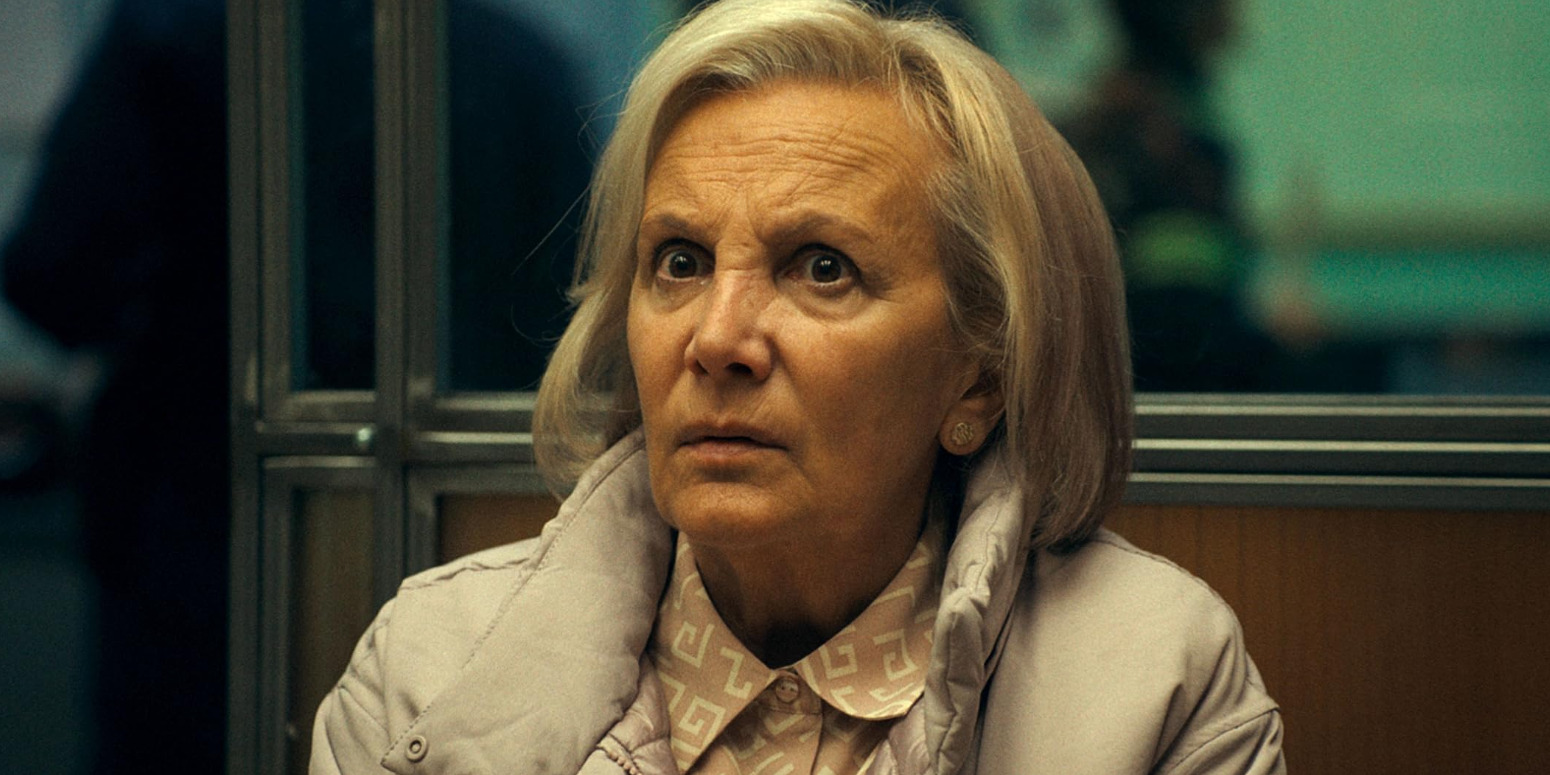
Consequently, once Fran and Rebeca—bitter exes but talented detectives—are assigned to the case, the latter insists the passengers must be lying. On the other hand, Fran remains unsure and disagrees with his partner’s brash decision to put pressure on the witnesses. Regardless, Rebeca goes ahead with her approach and confronts the witnesses after they’re taken to the station. Eventually, after one of the passengers feeds them fake information in a bid to resolve the situation, Rebeca ends up arresting all the passengers for withholding information from the police. Meanwhile, through forensics, they get a list of possible perpetrators, including Dante Bazán—the passenger who fled from the bus.
Nevertheless, before the authorities can do anything with the information, reporter Leyre Palacios publishes an article about him. As it turns out, Dante has a previous criminal record from when he was imprisoned for the murder of his sister. Nonetheless, his lawyer and one of the jurors agree that he had been a victim of the system’s flaw. As a result, once Leyre learns from her source that the cops will be making Dante’s identity public, she rushes to publish her article to get hold of the narrative. For the same reason, paired with the fact that Dante’s crime is killing robbers, the entire city rallies behind the man and hails him as a hero. Inevitably, the cops—who are still holding the witnesses under their custody—become the villains in the public’s mind.
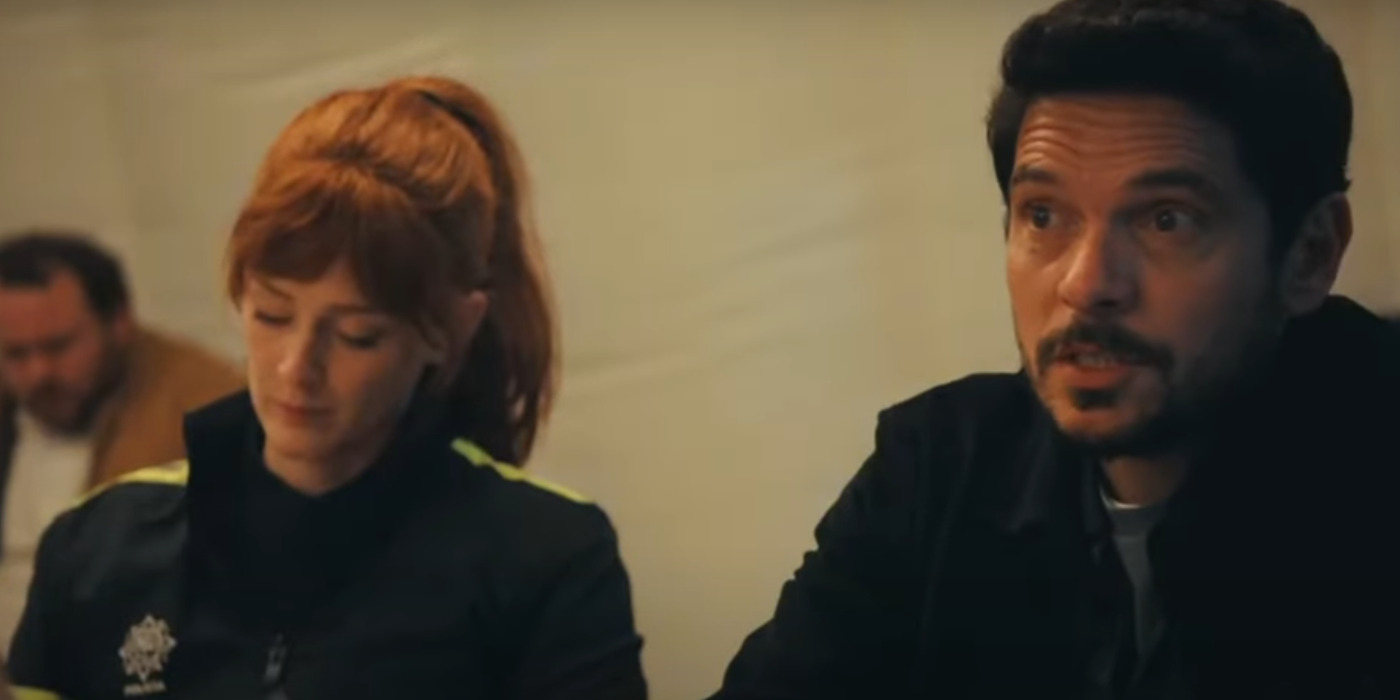
Meanwhile, Dante remains on the lam. Soon enough, the cops catch up to him, and an intense chase ensues. Once this brings Dante face-to-face with Fran, the former reveals that the passengers have been lying this whole time and that he never killed anyone. Afterward, he manages to flee, leaving Fran with a dilemma. Simultaneously, as the commissioner prepares a report outlining their version of the truth, Fran receives more perplexing information. Matías, the getaway driver for the robbers, comes to the detective to tell him that the media has got the entire thing wrong.
According to Matias, Dante left the bus before any shots were fired. As a result, Fran intervenes before the passengers are released and herds them toward the bus under custody at the station. There, he forces them into an intense recreation of the robbery to get to the bottom of the truth. As pressures run high, Elisa, an unofficial leader of the passengers, finally agrees to confess the truth.
You Would Do It Too Ending: Is Dante the Killer? Does He Die?
From the get-go, the passengers remain the only individuals with accurate knowledge about what transpired aboard the bus. Nevertheless, they seem to have come to a unanimous agreement to protect the killer’s identity. Initially, it seems like they’re doing so because they feel indebted to the man who saved their lives. Nevertheless, as the investigation continues, they begin to have their own skin in the game. The passengers are essentially lying to the cops and obstructing justice by keeping the killer’s identity a secret. Therefore, if the cops prove that they’ve been lying, the passengers would be considered accomplices of the crime.
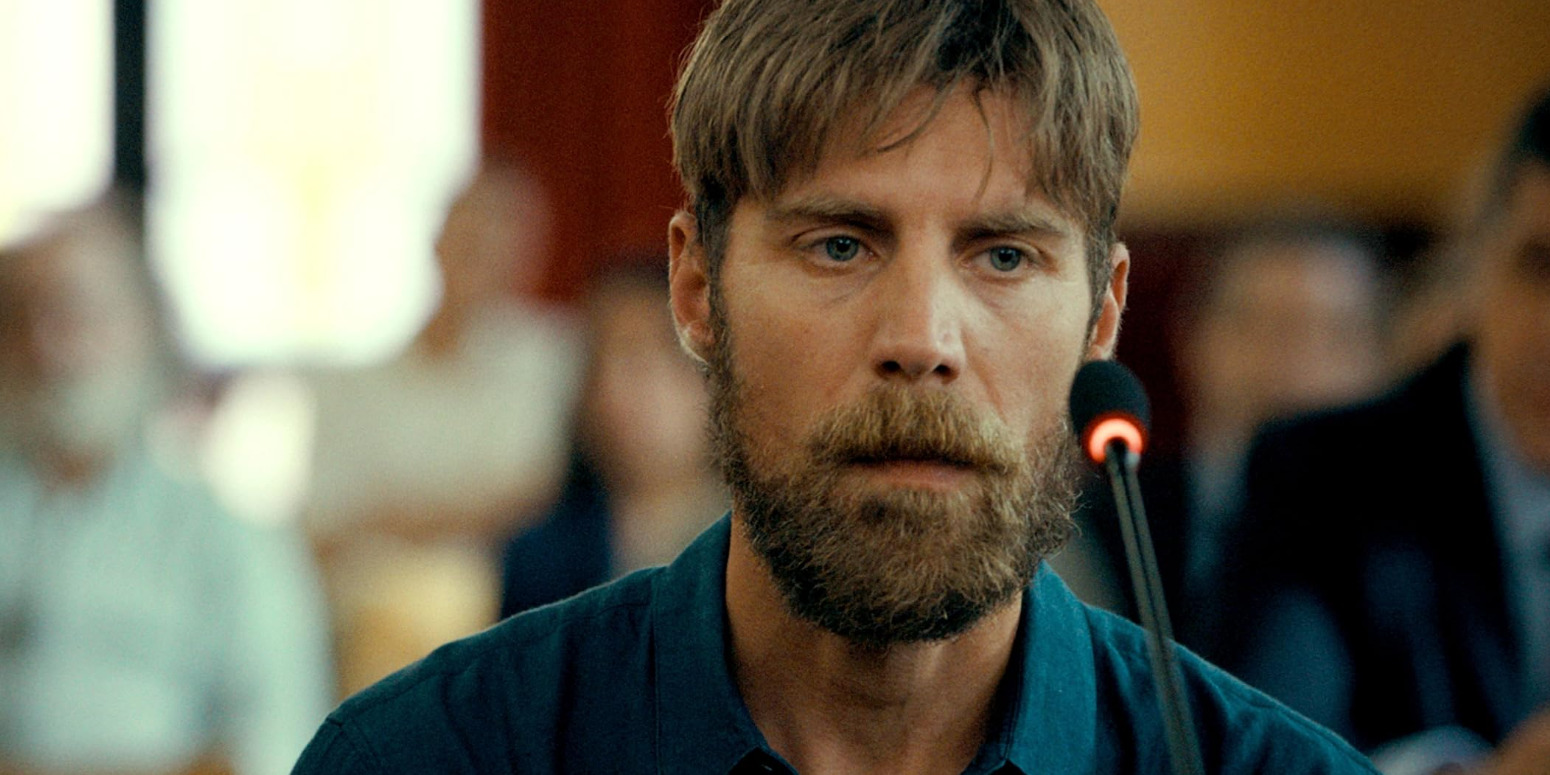
This becomes infinitely more complicated after Matias reveals that Dante was never the killer to begin with. The same confirms that one of the passengers is the actual perpetrator behind the murders. For the same reason, Fran—who has been careful and hesitant to blame the passengers so far—steps up and dials up the pressure on them. Thus, a different truth eventually comes out. Elisa tells Fran that the passengers had a brief window to grapple for a second gun after Dante left. However, once they held their own against the robbers, they told them that their boss, Coco, would ruin the passengers’ lives if anything happened to them. In the tussle that followed, the passengers ended up killing two of the robbers.
Since Manuel had already contacted the cops, the passengers had essentially sealed their own fate as criminals. Nonetheless, Elisa came up with a solution. As such, she killed the third robber and convinced everyone to pin the blame on the passenger who escaped while keeping his identity a secret. As a result, they can use him as a scapegoat while maintaining that it was self-defense. Thus, Fran realizes that Dante never actually killed anyone. In fact, as the narrative focuses on the man, another truth emerges about his past.
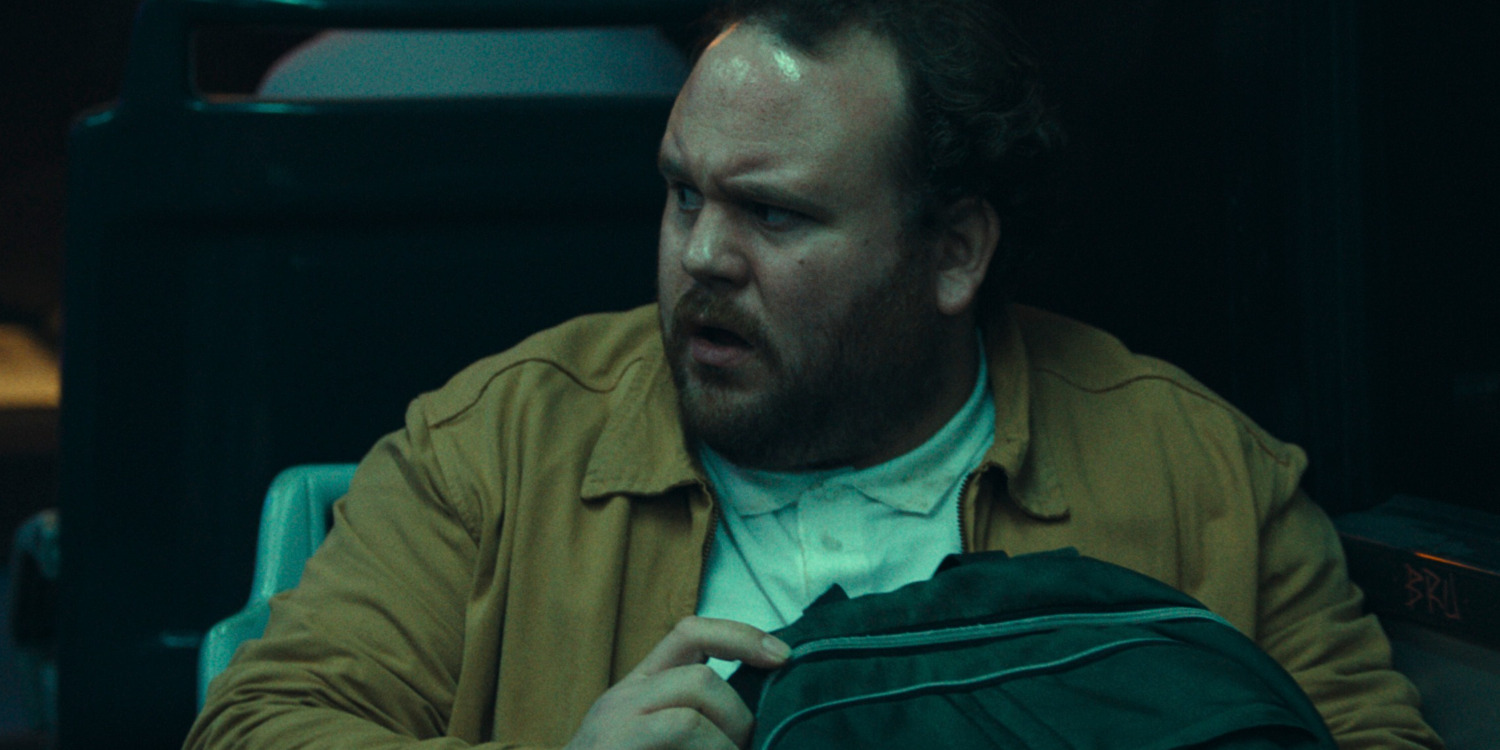
Dante was tried and found guilty of his sister Lucia’s death. Lucia’s insurance agency accused the man of the murder since they claimed the woman—who had a terminal illness—premeditated her death to evade mortgage payments. They further claim that since Dante loved his sister dearly, he went along with her plan and staged her death to look like a murder so that her family could get the insurance money. Ultimately, the jury found him guilty—a decision they retroactively regret.
Still, it meant Dante had to spend a year in prison, which proved to be a highly traumatizing instance for him. For the same reason, since he was breaking his parole by being on the bus, he fled from the scene and continued hiding from the cops. He was scared that he’d be sent back to the hellish prison he recently exited. Furthermore, he also wanted to share a vital truth with his siblings. Apparently, Dante really was innocent of Lucia’s murder. The day he found her in her apartment, the place had been turned upside down, but there were no perpetrators. Lucia had committed suicide and made it look like a robbery to spare her family her mortgage.
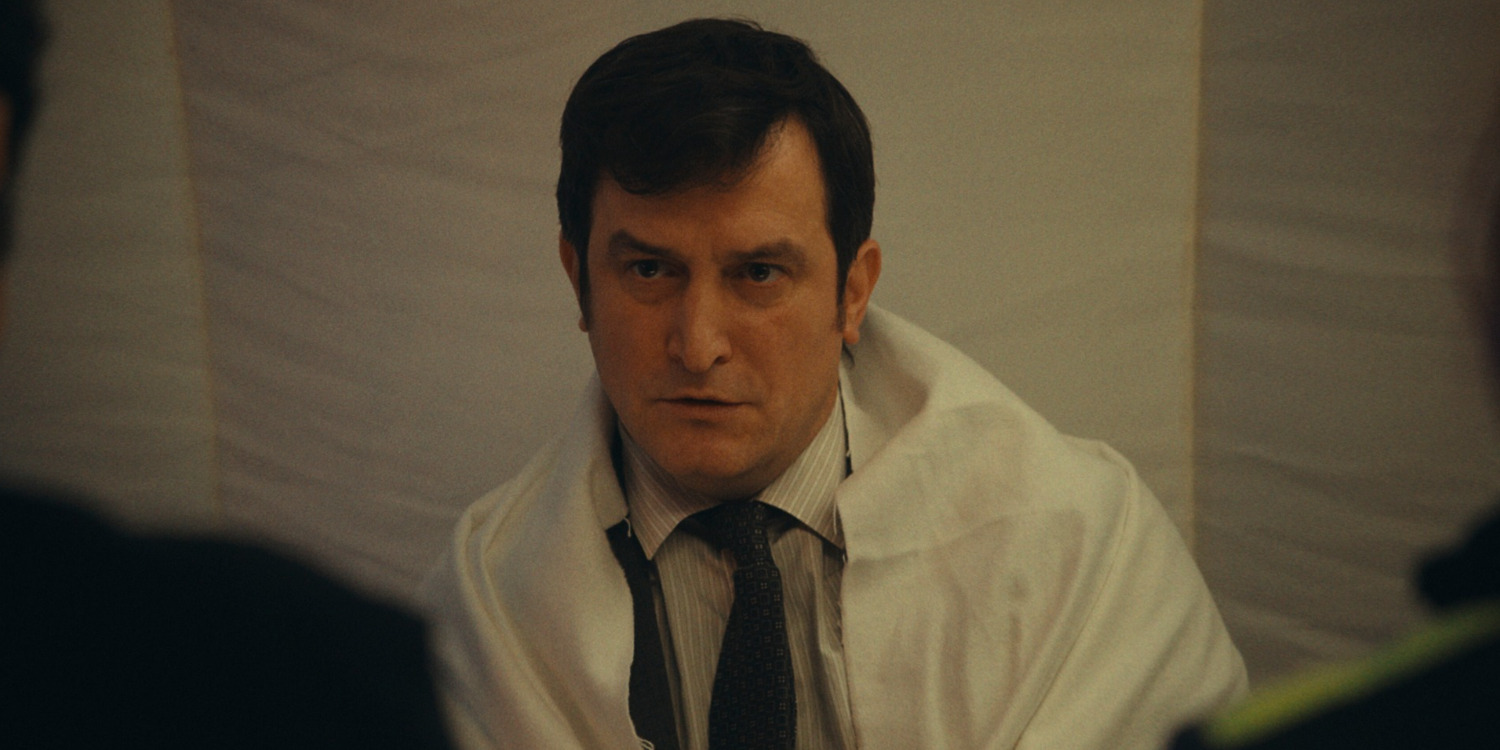
Even though Dante had found her in time to call for help, he chose to respect her wishes and allowed her to die in the apartment. In the end, it was Lucia’s illness and its ruinous effects that led her to take her own life. Nonetheless, Dante still played some part in her demise. Once he shares this truth with his family, he seeks out a way to flee from the country to evade the cops and ends up hitching a ride with some drug dealers. Nonetheless, the cops intercept the truck and inevitably shoot Dante when he tries to escape.
The man goes into a coma, and the fake ID on him ensures his identity remains a secret. Even though the police commissioner discovers the same, she decides to keep the entire thing under wraps—unwilling to paint the authorities in a bad light by admitting they killed the people’s hero. As a result, she tells Fran and Rebeca to let the case go despite the new discoveries they have made. In the end, Dante dies as an anonymous man in the hospital without anyone learning the truth about him.
Who Were the Robbers?
When the story begins, the passengers establish a clear hero and three robbers in their tale. Dante is the knight in shining armor, and the three people he killed were the three robbers. Nonetheless, a different truth emerges as Fran and Rebeca dig deeper into the story. As such, the lines between the truth and the account of the passengers begin to blur. Nonetheless, once the commissioner makes it clear that she’s more interested in preserving the department’s public image than catching the bad guy, Fran decides to cut his ties with the investigation. Still, it ends up returning to him anyway.
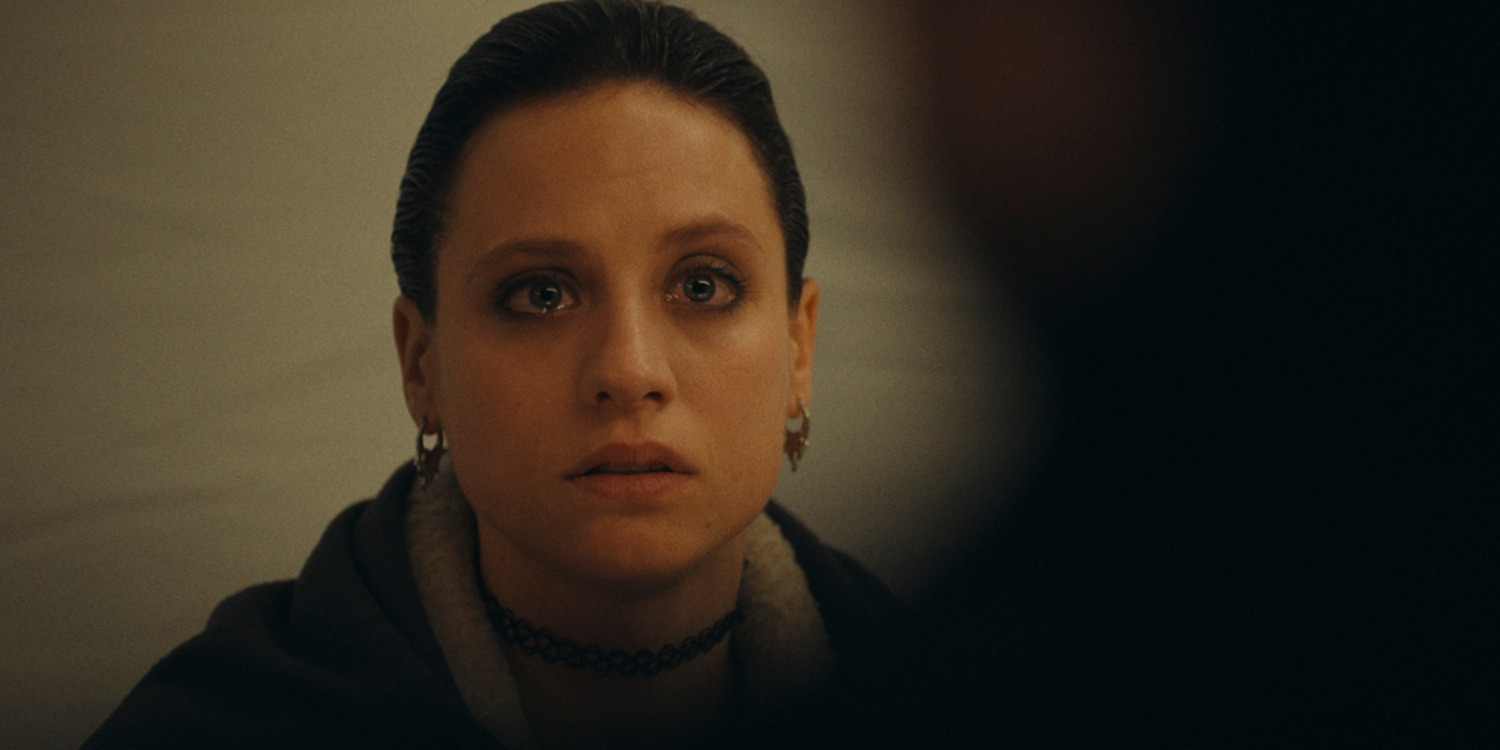
After the passengers are released, they return to their normal lives. Yet, their shared traumatic experience looms over them as a threat. Eventually, the weight of the same brings Manuel and Marga to Fran. The two reveal that even the account Elisa shared, in the end, was a manufactured version and far from reality. Thus, Manuel and Marga finally confess the actual truth behind the events that took place on the bus. In reality, the three victims weren’t actually the robbers. Instead, three of the people assumed to be witnesses—Elisa, Balter, and Miren—actually carried out the robbery.
After the trio carried out the robbery—and Dante fled— Natalia, Efren, and Juan—tried to stop the robbers by pulling guns on them. Nonetheless, it was useless since they threatened to ruin everyone’s lives if they didn’t let them leave. However, before Elisa and the others could escape, Juan goaded the woman by bringing up her side hustle as an online sex worker. This enraged the woman to the point where she ended up shooting him. After Matias heard the gunshot, he drove away from the scene. Therefore, once Elisa realized that their getaway driver had stranded them, she improvised a different truth. Thus, she made Natalia, Efren, and Juan look like the robbers. Throughout the investigation, Elisa remains the mastermind in concocting the perfect lies to protect herself. Meanwhile, the others have no choice but to comply under the weight of her threats to hurt them and their families.
What Happens to The Killers?
Elisa, Balter, and Miren use their connection to Coco to threaten the other passengers into keeping quiet about the truth. Nonetheless, one of them—Jandro Pineda—grows frustrated with his destitution and takes an adverse step. He reached out to the reporter, Leyre, promising to reveal the actual truth about the crime in exchange for money and witness protection for him and his family. Inevitably, news of the same reaches Elisa, who arranges for Miren to kill the man by running him over with a car that can’t be traced back to them. For the same reason, Manuel and Marga are scared for their lives and arrive at Fran’s doorstep.

Although Fran sends them away, he can’t help but investigate the case. Consequently, he stakes out near the trio’s garage and taps into their apartment. Although Elisa and the others have gotten away with their crime, they have Coco’s debt looming over their heads. In an attempt to buy their silence, Elisa returned the stolen money to the passengers. In turn, she has to make up for the loss to Coco now. Initially, she plans on returning that money through the stolen cash. However, Matias and his girlfriend, Saray, already stole the stash from their apartment. Moreover, even after they catch Saray, they learn she has already invested that money elsewhere.
As a result, Elisa concludes that they must pull off another robbery to pay back their debt and flee the country. She employs Coco’s help to get fake IDs and travels to a different city to carry out the same heist abroad on a different bus. Only this time, another reckoning awaits them. After Fran heard the trio’s plans for the heist, he booked a ticket to the same bus to foil their plan. Therefore, this time, he emerges from the shadows to stop Elisa and the others before they can flee. Thus, Fran ends up playing the role of the “hero” now and kills the three robbers in cold blood. Afterward, he flees from the scene.
Does Fran Quit the Police Force?
By the end, Fran seems to have lost his faith in the police. He recognizes that the commissioner doesn’t truly care about serving justice. She was willing to pursue the case as long as it was beneficial to her. However, as soon as one of her trigger-happy cops made a mistake and shot down Dante, she was ready to drop the case without serving any justice. For the same reason, he quits from the force on the spot. Fran has been struggling with his profession for some time. For the same reason, he had turned down a promotion earlier. However, this instance becomes the last straw.
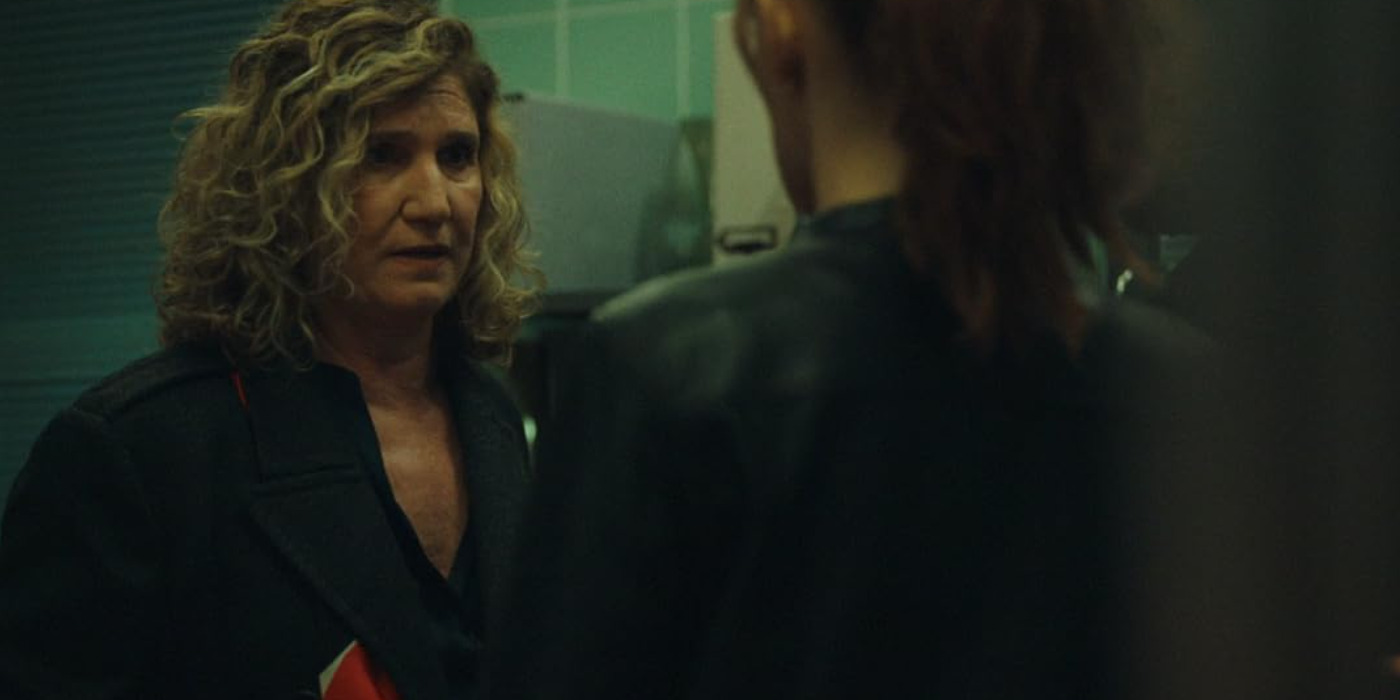
Still, try as he might, Fran can’t stay away from his true calling. Consequently, he continues investigating Elisa—even if in secret—and foils her final robbery. However, a significant change has occurred in the detective. Although he still believes in delivering justice, he no longer trusts the police force to be responsible for it. As such, he decides not to wait for the authorities and shoots the robbers down himself. Afterward, he returns to his job as a detective as if nothing had really happened.
Fran has realized that sometimes, one must take justice into one’s own hands. Nevertheless, at the same time, he also knows he would have an easier time doing so if he could hide behind his badge. Therefore, he decides against quitting his job and returns to the police force. Yet, he has plans to go rogue to deliver his own brand of justice, even at the expense of breaking some rules. Furthermore, he also decides on his first target: Coco, promising to go after him next.
Read More: Best Spanish Movies on Netflix


You must be logged in to post a comment.